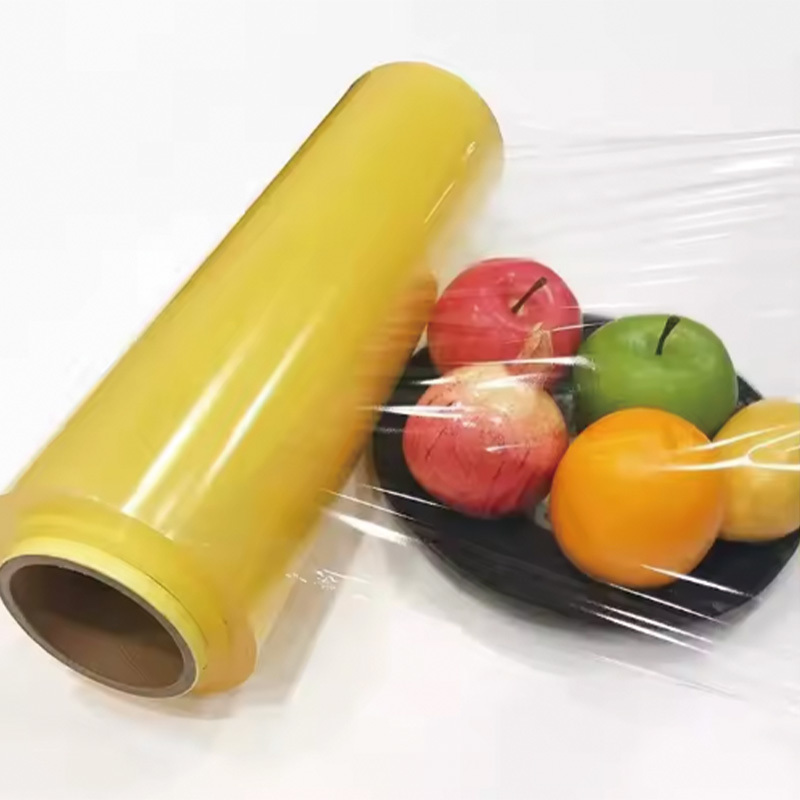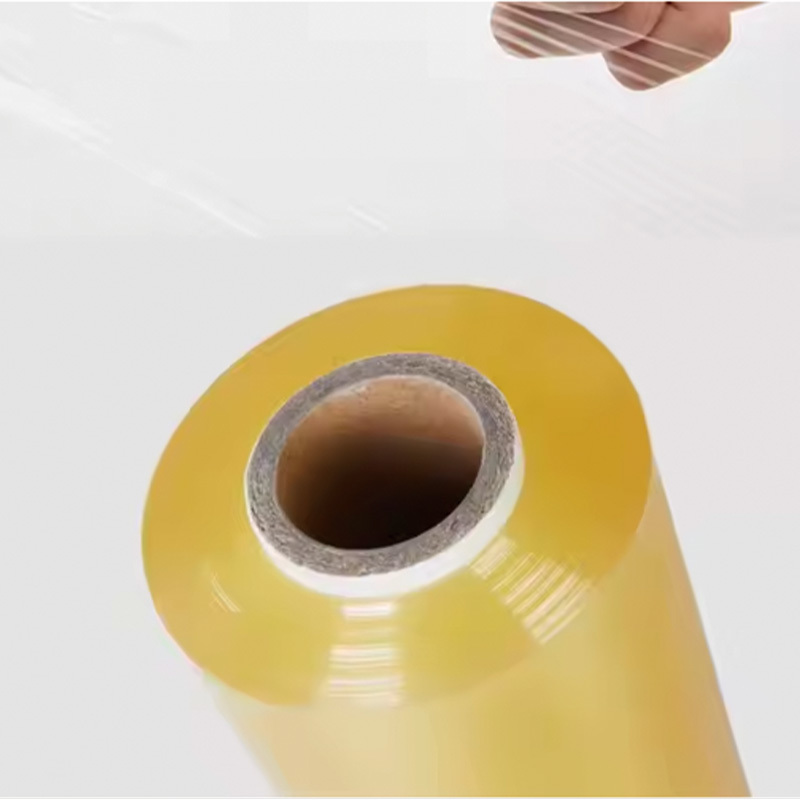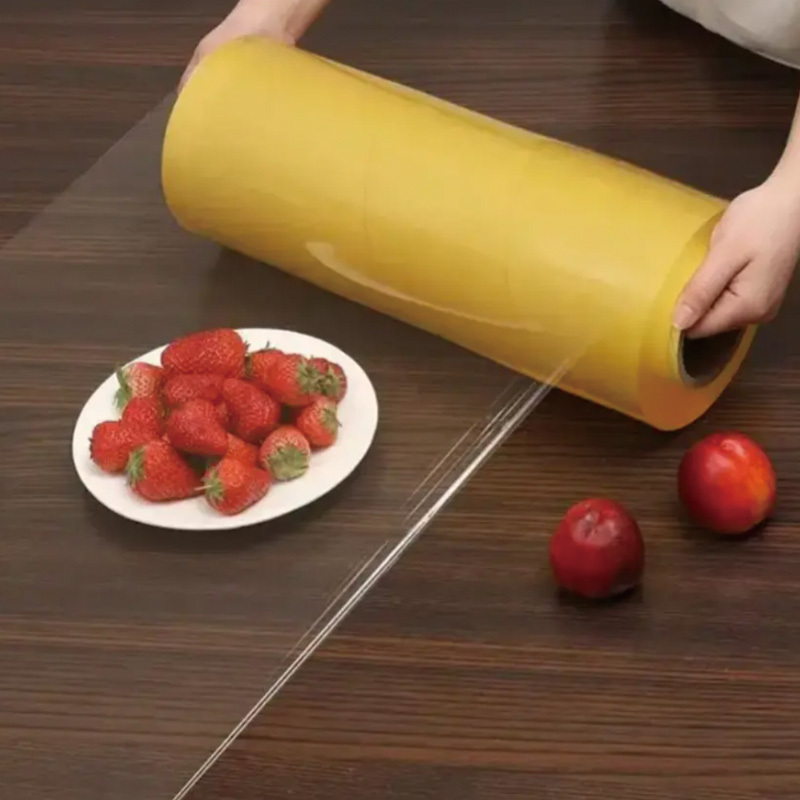Products
Contact Us
Tel:+86-13345113241(Flora Li)
WeChat:+86-133-4511-3241
WhatsApp:+86-133-4511-3241
Email:sales@clgreenhousefilm.com
Email:liflora426@gmail.com
Factory Address: Zhuliang Plastics Industrial Park, Gaoliu Town, Qingzhou City, Shandong Province
Jinan Foreign Trade Sales Address: Unit 2, Building 7, Shanggan Xintiandi, Industrial South Road, Jinan City
Food preservative film
Keywords:
Details Description
The plastic film used to keep vegetables fresh is commonly called vegetable (vegetable plastic wrap) or food-grade PE film in practical terms. Here’s a detailed breakdown of its characteristics and usage:
1. Core Terms and Materials
Common Names:
i.Plastic wrap / Plastic film (general terms for food preservation films).
ii.Vegetable cling film (emphasizing its adhesion and freshness-keeping function for vegetables).
iii.Food-grade PE film (indicating its material—polyethylene, which is safe for food contact).
Main Material:
i.Most vegetable is made of LDPE (Low-Density Polyethylene) or LLDPE (Linear Low-Density Polyethylene), which are odorless, non-toxic, and have good air permeability and flexibility.
2. Key Functions for Vegetables
Preventing Moisture Loss:
The film forms a physical barrier to reduce water evaporation from vegetables, keeping them crisp (e.g., lettuce wrapped in PE film can maintain moisture for 3–5 days longer than when exposed).
Controlling Respiration:
It allows limited oxygen and carbon dioxide to pass through, slowing down the respiration of vegetables and delaying spoilage (e.g., for green peppers, proper air permeability prevents mold growth due to excessive humidity).
Isolating Contamination:
It blocks direct contact with bacteria and odors in the refrigerator, such as preventing cabbage from absorbing the smell of fish.
3. Usage Scenarios and Tips
How to Use:
i.Wrap vegetables loosely to avoid condensation (which causes rot).
ii.Remove damaged leaves before wrapping to extend freshness.
iii.For leafy greens, wrap the roots first to retain moisture (e.g., spinach wrapped from the roots up stays fresh longer).
Caution:
Avoid using PVC film (which contains plasticizers) for vegetables, especially oily or acidic ones, as plasticizers may migrate into food.
Check for the "Food Grade" or "PE" label to ensure safety.
4. Alternative Eco-Friendly Options
Biodegradable Films:
Made from corn starch or PLA (polylactic acid), these films decompose in compost but have lower tensile strength than PE films.
Reusable Options:
Beeswax wraps (cotton cloth coated with beeswax) or silicone food covers can replace plastic film for multiple uses, suitable for storing cut vegetables (e.g., half-cut cucumbers).
5. Common English Expressions in Contexts
In supermarkets or packaging labels:
"Vegetable Freshness Plastic Wrap"
"Food-Grade PE Cling Film for Produce"
In daily conversation:
"Use plastic wrap to keep the veggies fresh."
"Wrap the lettuce in cling film before putting it in the fridge."
Summary
The film used for vegetable preservation is essentially food-grade PE plastic wrap, valued for its safety, moisture retention, and breathability. When purchasing, prioritize products labeled "Food Grade" or "PE" to ensure both freshness and safety.
Get a free quote
Please fill in your contact information and your needs, and we will arrange a professional to contact you!
Agricultural Technology
Sorry, the content is being organized, please browse other information first!
FAQ
Q
Are you a manufacturer?
A
Yes, we are a agricultural film manufacturer in China, covering an area of 7,000 square meters with a daily output of 50 tons.
Q
What information should I provide to get an accurate quotation?
A
Option 1: Dimensions, thickness, width, and length and specification;
Option 2: Functional requirements, such as anti-fog, anti-drip, light conversion, diffused light, etc.;
Option 3: What plants are the greenhouses used for?
Option 4: In which country or region will it be used? Please provide a detailed description of the climate conditions at the site of use, including temperature, precipitation, etc?
Option 5: The service life (lifespan) you require for the product.
Q
Can your products be used in areas with strong UV radiation?
A
Yes, our products are very popular in the Xinjiang market of China, where there are 13 hours of sunlight during the day.
Q
What is your production capacity?
A
We produce 50 tons per day, approximately 1,100 to 1,500 tons per month.
Q
Are you willing to provide samples?
A
We provide samples for free, but the customer needs to pay the express delivery fee.
Q
Do you inspect the finished products?
A
Yes, the company has professional testing instruments and a testing department. Quality inspection is carried out for each production step and the finished products before delivery.
Q
Can your products be used in areas with frequent acid rain?
A
Yes, our products can also be well applied in acid rain areas, such as Yunnan, Sichuan, Guizhou, etc.
Q
What is your delivery time?
A
Our delivery time is about 10 to 20 days.
Q
What is your minimum order quantity (MOQ)?
A
Our minimum order quantity is 1 ton.










